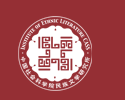The Albanian songs of the Epos of Frontier Warriors are a cycle of epic, heroic legendary songs. They are among the most important artistic pillars of ethnic Albanian culture. The Epos of Frontier Warriors is a multifaceted poetic reflection of ordinary life (6th to 8th c.), and represents interethnic conflicts that have lasted for centuries, and the bloody struggles of Illyrians/Albanians with the south Slavic settlers in Illyria (Balkans), from when the latter began to arrive until the fourteenth century, particularly during the 13th and 14th centuries, when the conflict was aggravated and expanded as the Serbian Nemanjić dynasty reinforced its central feudal rule, as stated by the Aleks Buda (1986). Maximilian Lambertz (1958) agrees that these songs ‘derive from the time of the exodus of the Slavs through the Lower Danube in the Balkans (Illyria), and they preserve the memory of the old Illyrians or Albanians against the Slavs, who were invaded around the years 700-800.’ These songs are among the last epic poetries in Europe which are still sung at the beginning of this millennium, and it is rightly said that they belong in the realm of the world epic.
Lahuta-players are mainly cattlemen, the majority of whom come from mountainous or hilly-mountainous areas. Renowned lahuta-players can remember over ten thousand verses by heart. Lahuta-players are mainly men, though there are cases of female lahuta-players. Lahuta-players sing these songs accompanied by a single-stringed musical instrument called a lahuta. The lahuta represents the most ancient archetype of chordophone tools in the European continent arch. The lahuta has also been raised to a cult level. The cult of the lahuta in the Albanian family is widespread, just as there is a sacred respect for the songs of warriors.
The mythical poem is personified and transcends the earth and cosmic beings such as groves, springs, rills, hills, mountains, horses, birds, moons, stars, sons and skies. The legendary epic songs focus on topics such as when Halil sleeps for one hundred years and wakes up saying, ‘I seem to have slept a bit!’ or when Muji is sentenced to two thousand years of incarceration and serves them: this is covered in just one verse. Another example from the legendary epic songs in the epos that has attracted the interest of scholars is the verse in which the frontier hero emerges from Jutbina (Bosna) and arrives in Miskov (Moscow). These are two poems which overthrow the traditional rules of literary creation, essential to legendary poetry.
There are many topics in the Epos of Frontier Warriors: the protection of territory (pastures, forests, fields, etc.), the protection of livestock (sheep, goats, horses, etc.), the protection of kullas (courtyard, goods, buildings) and family issues (mother, bride, sister). Furthermore, the poems also deal with wars against taxes. The topic of the origin of frontier warriors – farmers or orphans getting their power from fairies and maintaining a friendship with them – is also widespread. Another frequent topic is that of the marriage of frontier warriors: marriage in friendship, marriage on conditions, marriage in a race, marriage in obstacles, marriage by abduction, and marriage by force.
The Epos of Frontier Warriors is a type of Albanian legendary epic poetry, and is among the oldest examples of spiritual creation of the endangered Albanian people, who were unfortunately on the brink of extinction. Its collection in five countries of the Balkans is essential for the Albanian people in this new millennium. Many articles have been written regarding the artistic value of this legendary epic poetry, and studies have been conducted by Albanian and foreign scholars in the last two centuries. It has been concluded that its artistic value is very high: the Epos of the Frontier Warriors may be deemed one of the highlights among European and world original folklores today.
The Epos, along with polyphony, mourning traditions and the xhubleta of the code known as the Kanun, is the oldest ethno-cultural monument of which the Albanians can pride themselves in the world. Although there have been around half a million verses of songs and variants collected up until today, work is not over for collectors of the Epos of Frontier Warriors, especially for those in the larger study centers in Tirana (Albania) and Prishtina (Kosova). Having a high regard for it as a great national treasure, we anticipate that we will demonstrate that the legendary Epics of the Albanian Frontier Warriors are a world treasure of art and culture, and as such, should be registered with UNESCO as a world cultural treasure.
